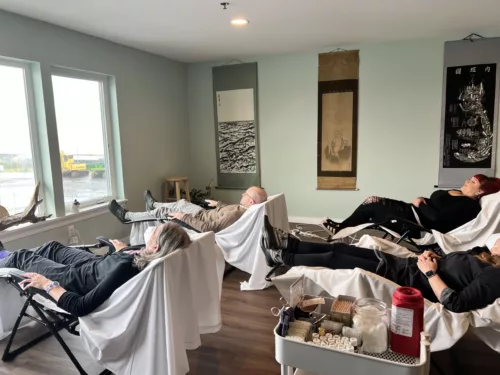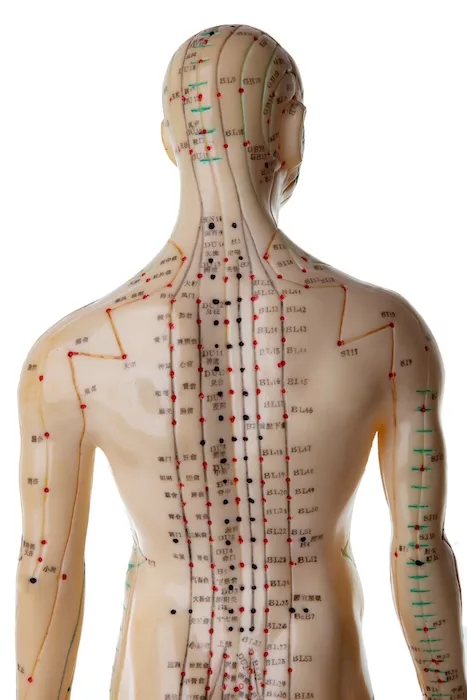Community acupuncture is done in a group setting - several patients are all in the same room together receiving treatment. In this style of treatment, intakes & conversation are minimal, and the overall appointment time is shorter. Treatment is cheaper than with traditional 1-on-1 care, and no insurance billing is available. Due to the public, open nature of the environment, there is not the same capacity to ensure privacy. Community acupuncture is best suited for relatively simple conditions including most mild to moderate musculoskeletal pain conditions, headaches, stress relief, and to add more treatments to an existing 1-on-1 treatment plan in an affordable way. Community acupuncture is not suitable for very complex conditions, and no adjunct treatment (moxibustion, cupping) nor herbal formulas can be offered during these abbreviated encounters.
Most people new to acupuncture worry that it will hurt. Most of us are familiar with hypodermic needles used to give injections and draw blood – and have had some pain from those procedures. Thus, the question!
The simplest answer is – no, it doesn't hurt, particularly in comparison with those needle experiences.
The more complex, and honest, answer is that it depends. The style of the acupuncturist, your current health situation, even the heat and humidity of the treatment area can all contribute to the amount of sensation you feel during acupuncture. That said, the vast majority of patients do not feel significant pain during treatment, and those that do usually find that after the initial needle insertion, the sensation decreases to almost nothing for the duration of treatment.
There are many reasons that acupuncture is less painful than other needle experiences.
One of the most important is that the needle size is MUCH smaller than hypodermics.
Most practitioners use 32-38 gauge needles – which average about a quarter of a millimeter in size. The average blood draw is done using 18-21 gauge needles, which are around .8 of a millimeter in size.
While that difference may seem small, to sensitive skin it means a lot!
US acupuncturists must first obtain a Bachelor's degree before applying for medical school. They then do a 3-6 year Master's or Doctorate program at a Nationally accredited institution.
The education includes a foundation in biomedical anatomy, physiology & pathology as well as significant information about safety, consent, privacy and other important ethical issues.
The remainder of the program consists of Chinese medical theory, acupuncture theory, and many programs also cover Chinese herbs and dietetics. The last year of education is typically devoted to clinical education.
In the US, acupuncturists are licensed by state medical boards or specialized state acupuncture boards. National certification through the NCCAOM is also available and requires significant training and recertification every 4 years.
All acupuncturists are required to do extensive continuing education in order to maintain licensure.
When practiced by a licensed practitioner, acupuncture is very safe.
There are very few documented cases of any significant harm being caused by a licensed acupuncturist. You will receive an acupuncture consent form prior to your first treatment that lists all the potential complications from acupuncture treatment. If you have any questions or concerns after reading this document, don't hesitate to ask your practitioner.
US acupuncturists receive ample training in safe & sterile needling technique, the control of infectious pathogens, CPR and first aid, as well as how to handle any potential complications of acupuncture should they occur.
You will likely feel very relaxed, perhaps even a bit sleepy, after your treatment. Because of this, it is best if you can rest, or do some gentle movement like yoga or a walk, after your treatment. You should certainly avoid any strenuous or stressful activities if at all possible.
It's a great idea to write down any notes you have about your treatment in the 24-48 hours afterwards, you can then share this information with your practitioner at your next session. Information like this is very helpful in guiding your treatment progression!

